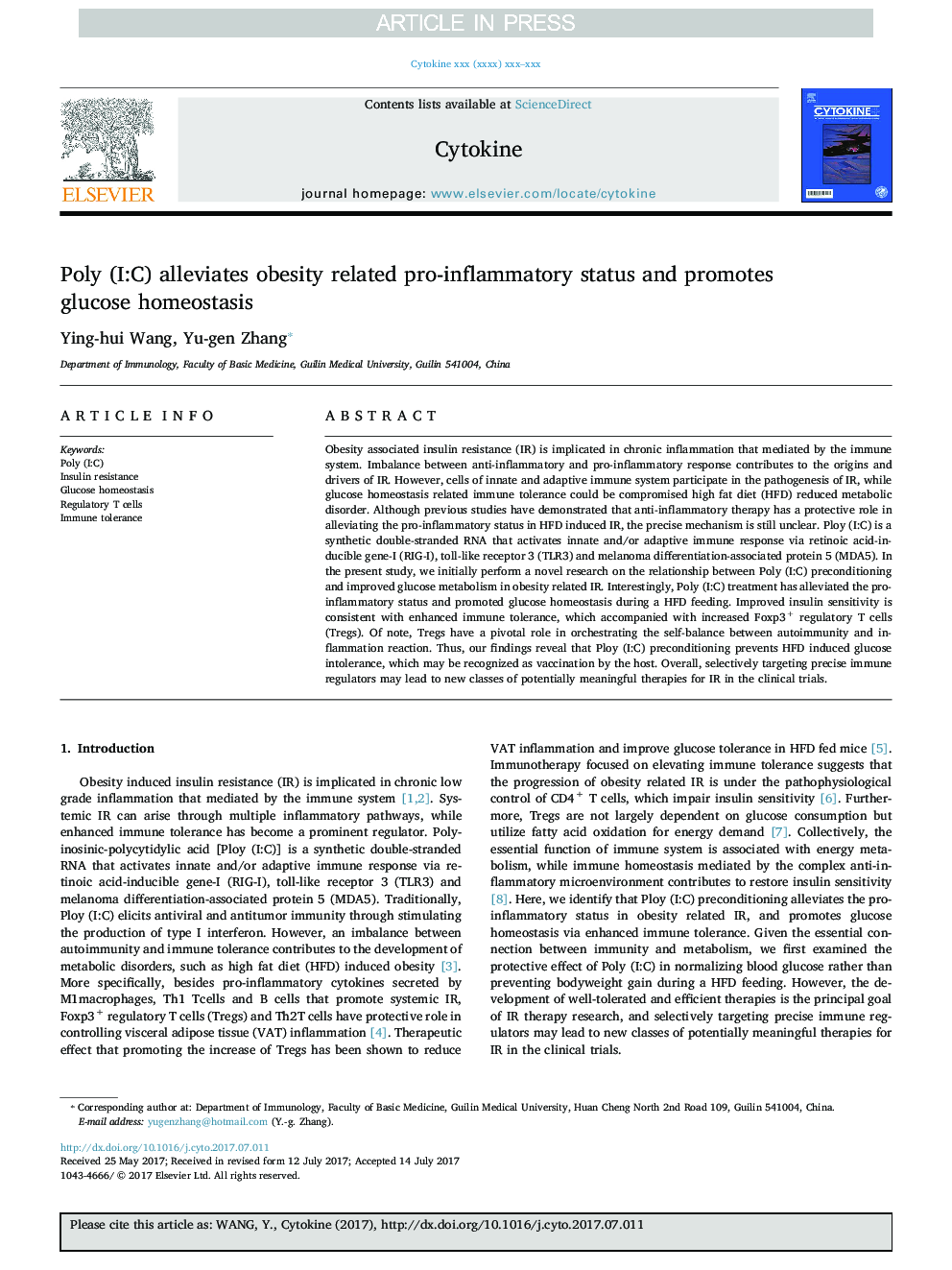| Article ID | Journal | Published Year | Pages | File Type |
|---|---|---|---|---|
| 8629512 | Cytokine | 2017 | 8 Pages |
Abstract
Obesity associated insulin resistance (IR) is implicated in chronic inflammation that mediated by the immune system. Imbalance between anti-inflammatory and pro-inflammatory response contributes to the origins and drivers of IR. However, cells of innate and adaptive immune system participate in the pathogenesis of IR, while glucose homeostasis related immune tolerance could be compromised high fat diet (HFD) reduced metabolic disorder. Although previous studies have demonstrated that anti-inflammatory therapy has a protective role in alleviating the pro-inflammatory status in HFD induced IR, the precise mechanism is still unclear. Ploy (I:C) is a synthetic double-stranded RNA that activates innate and/or adaptive immune response via retinoic acid-inducible gene-I (RIG-I), toll-like receptor 3 (TLR3) and melanoma differentiation-associated protein 5 (MDA5). In the present study, we initially perform a novel research on the relationship between Poly (I:C) preconditioning and improved glucose metabolism in obesity related IR. Interestingly, Poly (I:C) treatment has alleviated the pro-inflammatory status and promoted glucose homeostasis during a HFD feeding. Improved insulin sensitivity is consistent with enhanced immune tolerance, which accompanied with increased Foxp3+ regulatory T cells (Tregs). Of note, Tregs have a pivotal role in orchestrating the self-balance between autoimmunity and inflammation reaction. Thus, our findings reveal that Ploy (I:C) preconditioning prevents HFD induced glucose intolerance, which may be recognized as vaccination by the host. Overall, selectively targeting precise immune regulators may lead to new classes of potentially meaningful therapies for IR in the clinical trials.
Related Topics
Life Sciences
Biochemistry, Genetics and Molecular Biology
Endocrinology
Authors
Ying-hui Wang, Yu-gen Zhang,
